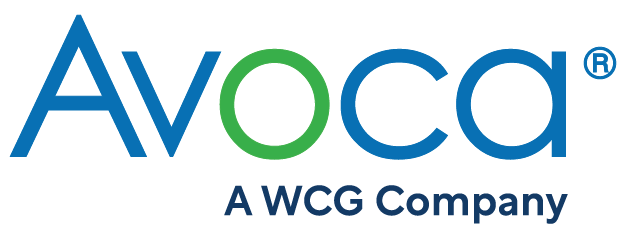Mandatory Use of Clinical Trial Information System (CTIS) for Initial Clinical Trial Applications in the EU

From January 31, 2023, use of CTIS for all initial clinical trial applications will be mandatory. CTIS was launched on January 31, 2022, starting the one-year transition time for all sponsors of clinical trials. During the first year, sponsors could choose whether to submit an initial clinical trial application in line with the Clinical Trial Directive (CTD) or under the Clinical Trial Regulation (CTR). The last date for sponsors to submit under CTD was January 30, 2023.
Many sponsors used the transition period to become familiar with CTIS. To date, more than 200 applications have been authorized under CTR. However, some users experienced problems with the new system. At an open event hosted by the European Medicines Agency (EMA) on January 20, 2023, Emer Cooke, the executive director of EMA, indicated that the first year was an opportunity for the agency to detect and resolve bugs to stabilize the core functionalities of the system and improve performance before the end of the transition year.
–
Training and Support for Sponsors and Member States
There are 23 online modules available as well as various resources and tools e.g., a sandbox, monthly walk-in clinics, and Bitesize talks. They allow for sponsor question and answer sessions with practical guidance on CTIS and its functionalities. A Clinical Trials Highlights Newsletter is published every two months. Since December 2022, a weekly CTIS newsflash has been published in anticipation of the mandatory use of CTIS on January 31, 2023. All of these resources are available at Clinical Trials Information System: training and support | European Medicines Agency (europa.eu).
–
Challenges
At the open event, in addition to the technical challenges encountered, both the sponsor representative and academia representative highlighted the following:
- The rigid deadlines for responding to Requests for Information (RFI) and the lack of notification that an RFI has been posted. Both recommended monitoring CTIS at least once daily during the application period.
- The lack of harmonization among member states resulting in the lapsing of trials due to unforeseen national requirements. For example, Part II documents for Greece need to include signed site agreements; Ireland and Germany did not accept the site suitability template because each country published a specific one to use; Hungary requested a protocol signature page for all investigators in an RFI. Note CTIS does not require signatures on protocols or CVs unless it is a national requirement. Annex 3 of the recently published CTR Q & A Version 6.3 lists the websites of member states where sponsors ‘can find important information to submit high quality Part II documents’ (i.e., the national requirements.) It is posted at EudraLex – Volume 10 (europa.eu)
- Part II RFIs were received before Part I had been approved resulting in additional work for both Member States and sponsors. The session chair indicated this should not have occurred and was a result of the steep learning curve that stakeholders are experiencing.
- Redaction takes time, especially during the 12-day RFI timeline.
- Difficulties encountered in cross referencing Investigational medicinal product dossier (IMPD) when the sponsor is not the product owner. A solution is in the works for this issue. The product owner will be able to submit the quality documentation directly to the member state concerned so confidentiality is maintained.
–
Qualification of Vendors
When qualifying CROs for an EU study, it will be important to assess their knowledge of CTR and what experience they have gained in using CTIS during the transition period. Training records should be reviewed prior to granting access to CTIS.
All service providers should have a process in place for identifying and reporting potential serious breaches to the sponsor promptly. The sponsor will need to determine if the breach meets the definition according to Article 52; i.e., a Serious Breach of the regulation or of the version of the protocol applicable at the time of the breach. Reporting of the serious breach should be done through CTIS within 7 calendar days of the sponsor becoming aware of the breach [Guideline on reporting serious breaches (europa.eu)].
–
Oversight of Vendors
There are up to 18 sponsor roles in CTIS. Each comes with a specific set of permissions. Examples of user personas are CTIS Submission Manager, Regulatory Project Manager, In-Country Specialist, etc. The personnel assigned to these roles could be at a CRO. However, oversight of the trial, including its submission and approval through CTIS, remains with the sponsor. It will be important for trial project managers at the sponsor to become familiar with navigating CTIS and overseeing vendors who have been provided access to the system and ensuring access is revoked when there is a change in staff or the trial has been completed.
–
Qualification of Principal Investigators and Sites
Principal Investigators (PIs) should also have a process in place to ensure site staff are able to identify the occurrence of a (suspected) serious breach and that it is promptly reported to the sponsor or delegated party through the contacts provided. This may be a formal standard operating procedure or study specific guidance in the protocol. Documented training of the site’s staff and PI on this process should be stored in the trial master file (TMF).
Training of Principal Investigators and site personnel in the EU will need to address the following new requirements:
- Learning and applying new consent requirements
- Complying with 24-hour reporting requirement of Serious Adverse Events (SAEs)
- Working with sponsor on reporting of serious breach and Urgent Safety Measures (USM) via CTIS within specified timeframe.
- Being aware of document archiving requirements (25 years for trial documents; national law for patient files)
- Documented or certified training (GCP, CTR etc.).
–
In February 2023, the WCG Avoca Quality Consortium (AQC) gathered to discuss their experiences with preparing for and/or actively using CTIS during the transition year. AQC members can view this session in the Knowledge Center webinar archive, as well as register for upcoming meetings on the event calendar. Also, 34 Knowledge Center documents have been revised to support compliance with the updated EU 536/2014 Clinical Trial Regulation.
–
Learn more about the AQC and how WCG Avoca can conduct a gap analysis of your processes to ensure they comply with CTR requirements.
Contact Us
–
–
Author:

Brigid Flanagan, BA, RN, CCRC, MSB
Senior Consultant
WCG Avoca
–
Published: March 2023
